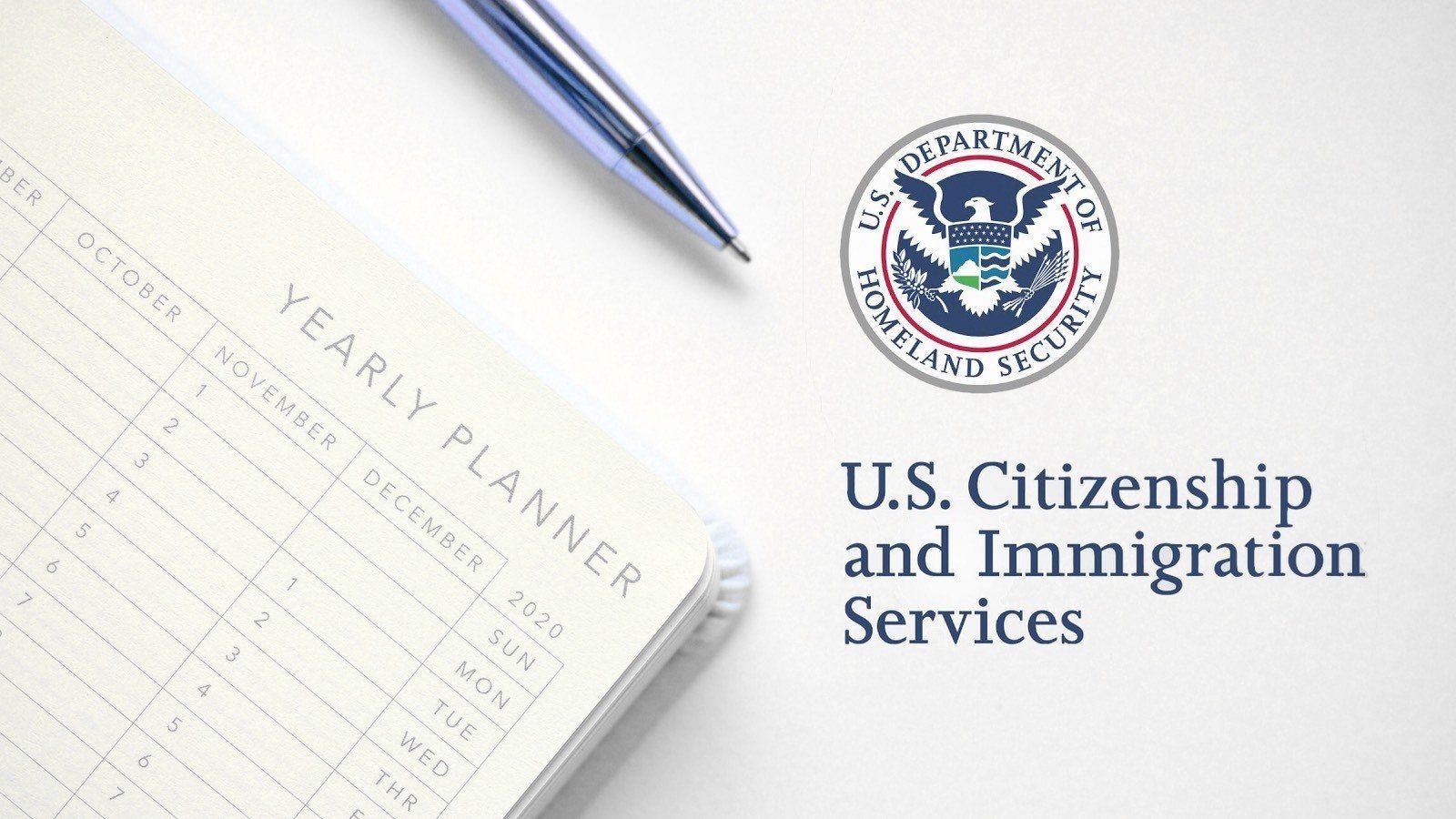What is Premium Processing and should I apply for or upgrade to Premium Processing for my EB-2 National Interest Waiver (NIW) Immigration case? It depends.
Monica Zafra • April 6, 2022
Click here to read this article in Spanish
Guidelines
On March 29, 2022, the Department of Homeland Security announced the expansion of USCIS' premium processing program to increase efficiency and reduce burdens to the legal immigration system. USCIS will seek to alleviate the large backlog exacerbated by the COVID-19 pandemic and expand premium processing to additional categories.
These changes will be implemented throughout fiscal year 2022 through a phased approach. By the end of this fiscal year, USCIS will expand premium processing eligibility to several different categories, one of which is the Form I-140 category for EB-2 National Interest Waiver (NIW) immigration worker petitions. USCIS is also expanding premium processing for other categories as seen here:
USCIS is known to have long processing times and as a result, several applicants have been awaiting updates from USCIS for months longer than anticipated. Premium Processing provides expedited processing for petitions sent to USCIS. Through this process, USCIS guarantees a decision within a shortened number of days to individuals who use the service or USCIS will refund the premium processing fee and still continue with their expedited processing. This is the deadline by which USCIS must issue either an approval notice, request for evidence, notice of intent to deny, or a denial notice. Upon receiving a request for evidence, an applicant may submit documents to support their case and
Fees and Processing Time
The estimated premium processing timeframe for I-140 EB-2 NIW cases will be 45 calendar days with a fee of $2,500. The current regular processing time for a decision for I-140 EB-2 NIW cases range from 8 months to over 1 year.
What does this mean for me and should I apply for or upgrade to Premium Processing for my case?
Premium Processing is a great option for the right applicant. Clients often request Premium Processing for their case due to the expedited turnaround time, which allows them to have a decision on their petition in a much quicker time than regular processing. It is important to consult with your attorney to discuss if you are a good candidate to upgrade. If your case is nearing adjudication, it may not be an ideal option, but if you are still far from a decision from USCIS, it may be a viable option for you. Until the final decision, USCIS will still only have premium processing for currently eligible cases, which are not EB-2 NIWs at this time. However, to prepare for this upcoming eligibility, foreign nationals can contact their Santos Lloyd case manager/attorney to discuss if their case is a good candidate to apply for or upgrade to premium processing when eligible.
If you are interested in applying for or upgrading to Premium Processing for your case, but are unsure if your case is eligible, please contact our office and speak with one of our experienced attorneys.
This blog is not intended to be legal advice and nothing here should be construed as establishing an attorney client relationship. Please schedule a consultation with an immigration attorney before acting on any information read here.
Monica Zafra
Similar Posts

USCIS has developed new regulations to expand its premium processing services for certain case types in order to address major backlogs and provide relief to work permit holders. The rule will take effect 60 days after publication in the Federal Register, but the premium processing expansion will take place in phases over a three-year period. The chart below includes the specific case types that premium processing will be made available for by September 30, 2022.

On March 31, 2024, U.S. Citizenship and Immigration Services (USCIS) implemented a policy update that limits gender marker selections on all immigration forms and systems to two biological sexes: male and female. This change eliminates the option for applicants to select a non-binary or “X” gender marker—an option that had previously been permitted on some forms. While USCIS emphasizes that this update does not change who qualifies for immigration benefits, it may significantly impact how certain applications—particularly asylum claims based on gender identity-related persecution—are understood and evaluated. What Has Changed? Under the revised policy, applicants may now only choose “Male” or “Female” when completing USCIS forms. The ability to select a non-binary or third-gender option is no longer available. Applicants may still request to change their gender marker with USCIS, but only within the male/female binary. Supporting documentation, such as medical or legal records, is not required to make the change. This means that transgender individuals can still align their gender marker with their identity—if it falls within the two binary categories—but non-binary individuals are no longer represented. The change follows guidance issued by the federal Office of Management and Budget (OMB), which called for greater consistency in the collection of sex and gender data across federal agencies. Impact on Asylum Applicants This policy update is especially important for individuals applying for asylum based on persecution related to their gender identity. Under U.S. immigration law, asylum is available to people who have suffered persecution—or fear future persecution—based on their membership in a “particular social group.” This includes people targeted for being transgender, gender non-conforming, or otherwise not aligning with socially expected gender roles in their home country. Although the legal standard for asylum remains unchanged, the removal of the non-binary gender marker could make it harder for some applicants to clearly present and document their identity. In asylum cases, credibility and clarity are crucial. The ability to accurately reflect one’s gender identity on official forms can play an important role in establishing the foundation of a persecution claim. Now, applicants who identify as non-binary or outside the traditional male/female categories may be forced to select a gender that does not align with their lived experience. This could lead to confusion in their case file or require additional explanation during interviews or hearings. This policy could weaken the strength of some asylum claims—not because the underlying facts have changed, but because the official forms now fail to reflect the applicant’s true identity. For example: A non-binary person applying for asylum after being targeted in their home country may now have to select “Male” or “Female” on their asylum application, despite not identifying as either. This mismatch may lead adjudicators to question the applicant’s identity, possibly weakening the strength of the claim or requiring added clarification and documentation. In defensive asylum cases—where applicants are in removal proceedings—such inconsistencies could create unnecessary hurdles and complicate the evidentiary presentation. What Can Applicants Do? Despite the change, individuals can still pursue asylum based on gender identity. The underlying eligibility criteria remain the same. However, applicants should be prepared to clearly explain any differences between their stated identity and the gender marker required on USCIS forms. Applicants are encouraged to: Include a personal declaration explaining their gender identity in detail and how it relates to their fear of persecution. Provide evidence such as affidavits, country condition reports, or expert testimony that supports the claim. Work with an experienced immigration attorney who can help present the claim effectively and prepare for any questions that might arise from the new form limitations. The new USCIS policy on gender markers may seem like a technical update, but for asylum seekers fleeing gender-based persecution, it has real implications. While individuals are still legally eligible to seek protection, the limitation to binary gender options could make it more difficult to fully and clearly present their case. If you or someone you know is facing immigration challenges related to gender identity—or is concerned about how this policy may impact an asylum claim—please contact Santos Lloyd Law Firm to schedule a consultation with one of our experienced immigration attorneys. We’re here to help ensure your voice is heard and your case is handled with the care and expertise it deserves.

In 2025, the immigration landscape continues to shift under the weight of national security concerns, ushered in by Executive Order “ Protecting the United States From Foreign Terrorists and Other National Security and Public Safety Threats. ” This directive tasks federal agencies—including the U.S. Department of State—with implementing enhanced screening and vetting protocols for all foreign nationals seeking visas or other immigration benefits. The result? A dramatically intensified vetting process, along with mounting concerns from immigrants, attorneys, and civil liberties advocates alike. Traditionally, airport security focused on verifying travel documents and screening for prohibited items, while consular officers assessed the legitimacy of visa petitions and the admissibility of applicants. Extreme vetting, however, represents a significant shift toward a far more invasive and comprehensive investigative process. It now includes detailed background checks, biometric verification, digital forensics, and expansive scrutiny of an applicant’s online presence and criminal or financial records. Since President Trump’s second term began in January 2025, the implementation of extreme vetting has expanded rapidly. Today, border screenings go far beyond routine document checks, encompassing a full-scale evaluation of a traveler’s digital life. This pivot reflects the administration’s intensified focus on national security, but it has also triggered urgent discussions about privacy, due process, and the fairness of modern immigration enforcement. At U.S. ports of entry—especially airports—noncitizens are now subject to rigorous and invasive procedures, including: Inspection of cell phones, laptops, and other devices (including deleted content) Review of social media activity on platforms like TikTok, Instagram, and X (formerly Twitter) Biometric scanning, including fingerprinting and facial recognition These measures are no longer confined to travelers from high-risk countries. In practice, extreme vetting applies broadly across all nationalities, and increasingly affects lawful permanent residents as well. For noncitizens, this new landscape introduces a heightened level of uncertainty and vulnerability. Delays at U.S. consulates for visa issuance or renewal are becoming routine. Travelers must now be acutely aware of these changes, and those attending consular interviews or seeking visa renewals should be prepared to provide additional documentation verifying their maintenance of status, compliance with visa conditions, and the bona fide nature of their visa applications. It is critical to organize supporting materials in advance and be ready to answer questions about employment, education, travel history, and online activity. As the U.S. government continues to expand its use of data-driven risk assessment tools, travelers must adapt to a new normal, one where preparation is essential to navigating the immigration system without disruption.

For international business owners and entrepreneurs engaged in cross-border trade with the United States , the opportunity to expand operations and establish a physical presence in the U.S. may be more accessible than expected. The E-1 Treaty Trader Visa is specifically designed to facilitate this type of business activity and offers a strategic pathway for qualifying individuals to live and work in the United States while managing or developing trade relationships. While 2025 has brought a trend of changes in immigration policy, the E-1 visa continues to stand out as a viable and welcoming option . Despite increased scrutiny across various immigration categories, this visa remains suitable for those involved in consistent, qualifying trade with the U.S. Its structure and purpose align well with current business realities, making it a stable choice even amid policy shifts. The E-1 visa is available to nationals of countries that maintain a treaty of commerce and navigation with the United States . To qualify, applicants must demonstrate that they are engaged in substantial trade—defined as a continuous flow of sizable international transactions—primarily between their home country and the U.S. Unlike investment-based visas, the E-1 visa does not require a fixed monetary threshold. Instead, it emphasizes active commercial exchange, such as the regular transfer of goods, services, or technology. This visa is applicable across a wide range of industries , including but not limited to manufacturing, logistics, professional services, consulting, finance, tourism, and technology. If more than 50% of your international trade is with the United States, and the business activity is consistent and well-documented, the E-1 visa may be a strong fit for your current business model. In addition to its flexibility, the E-1 visa is renewable as long as the trade activity continues. It also extends benefits to eligible family members: spouses and unmarried children under 21 may accompany the principal visa holder, and spouses are eligible to apply for U.S. work authorization, offering added support and financial opportunity for the family. This visa category is particularly well-suited for business professionals who are already operating in international markets and looking to formalize or expand their presence in the U.S. It rewards active engagement, proven commercial performance, and long-term trade partnerships. If you are currently engaged in trade with the United States and are considering expanding your business operations, the E-1 Treaty Trader Visa may provide a clear and effective route forward. Our attorneys at Santos Lloyd Law Firm are here to help you assess your qualifications and guide you through each stage of the process with clarity, strategy, and confidence.



